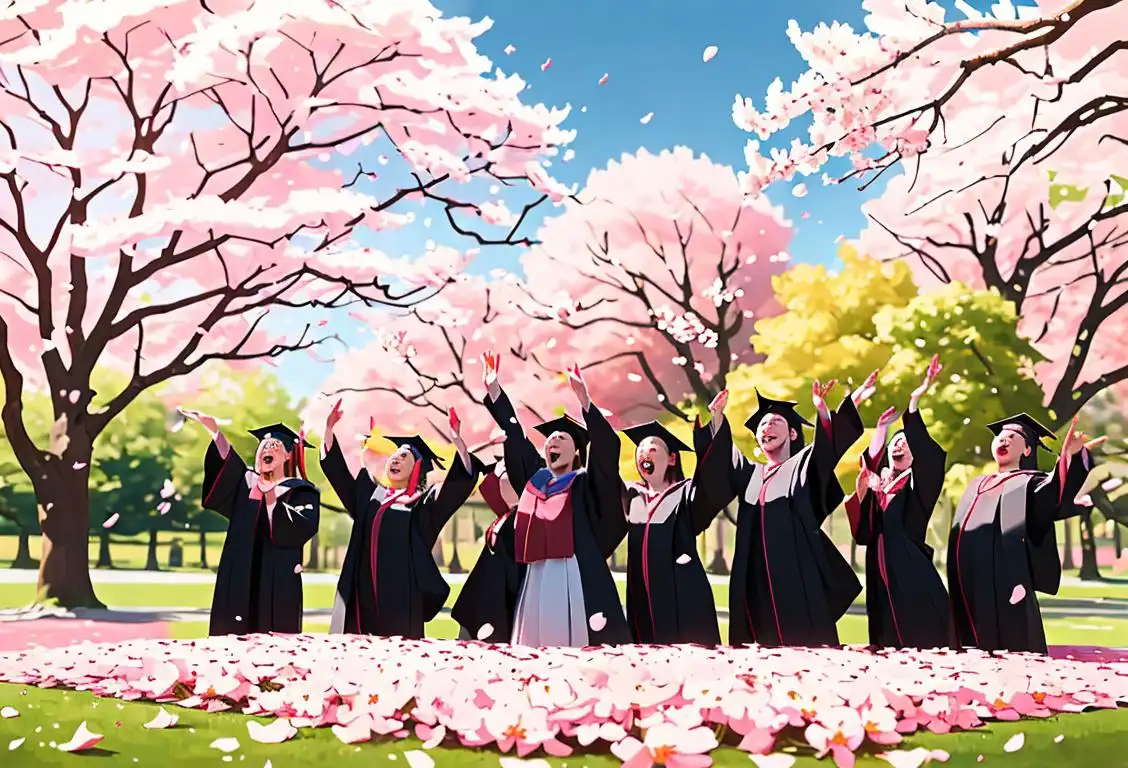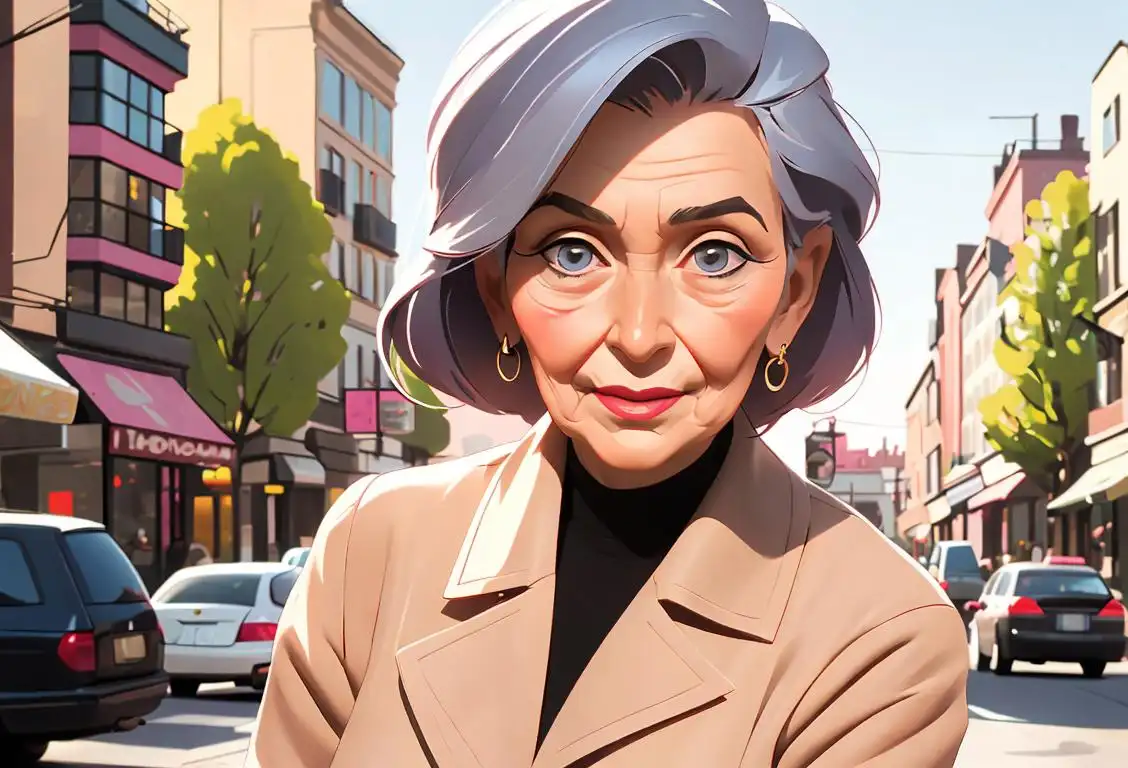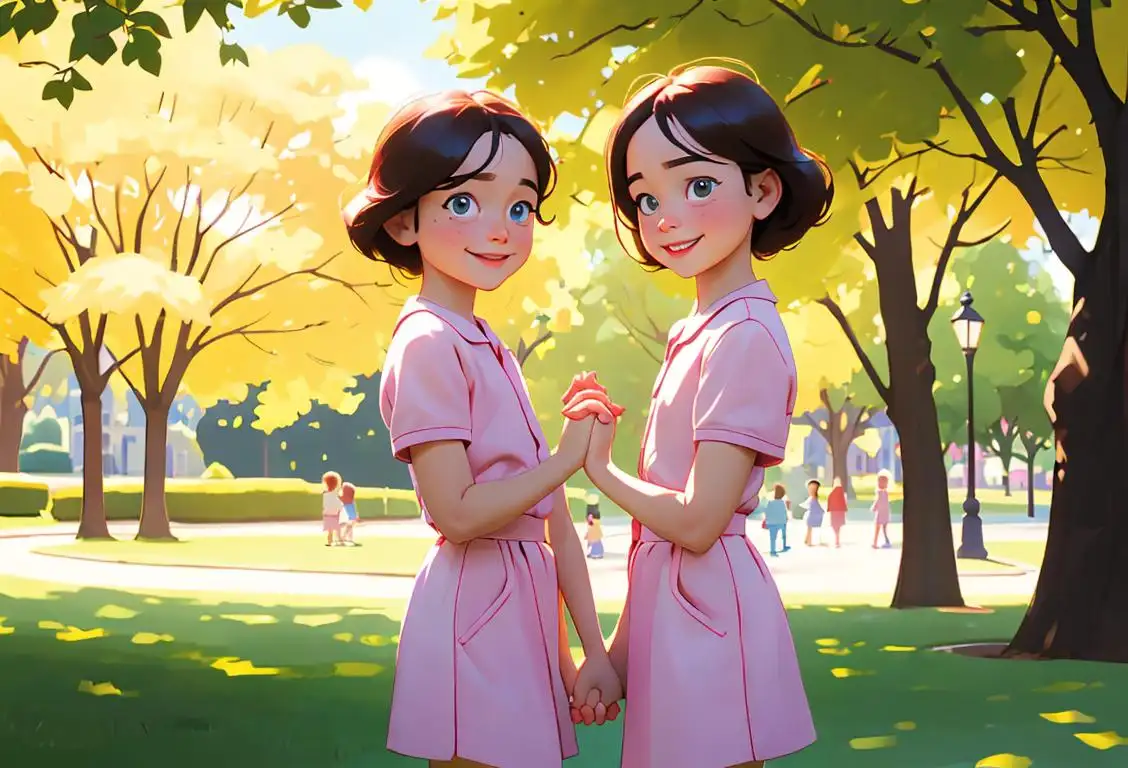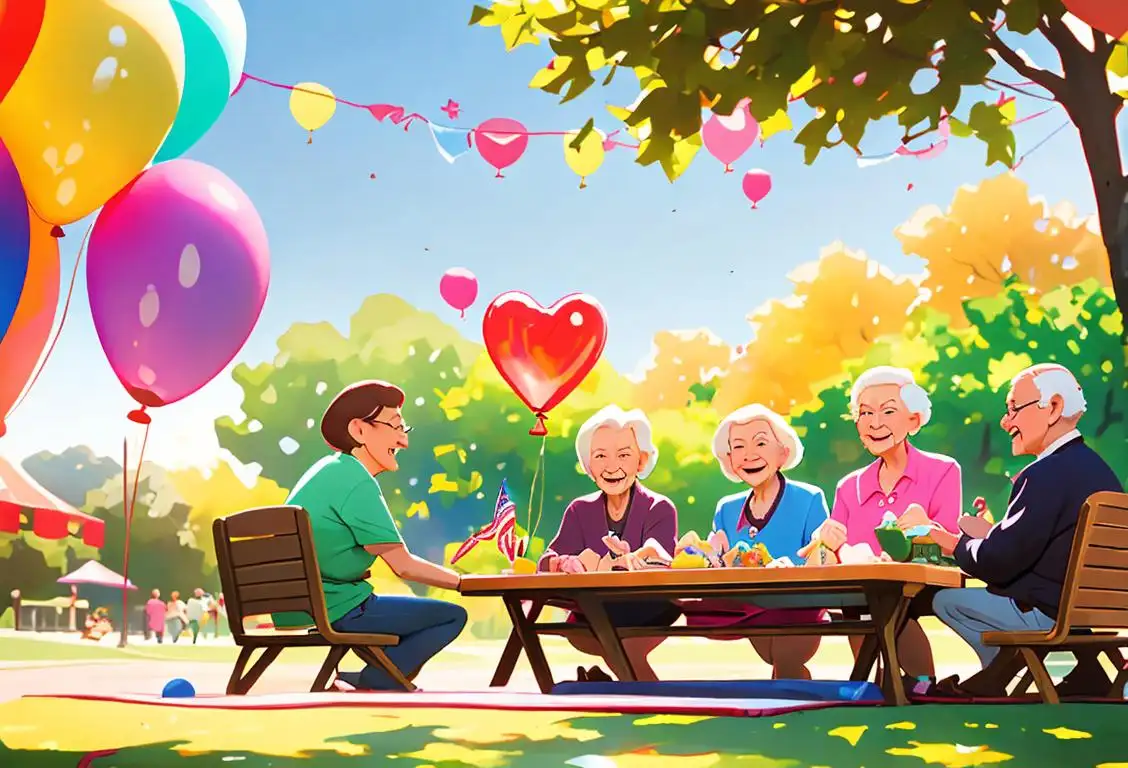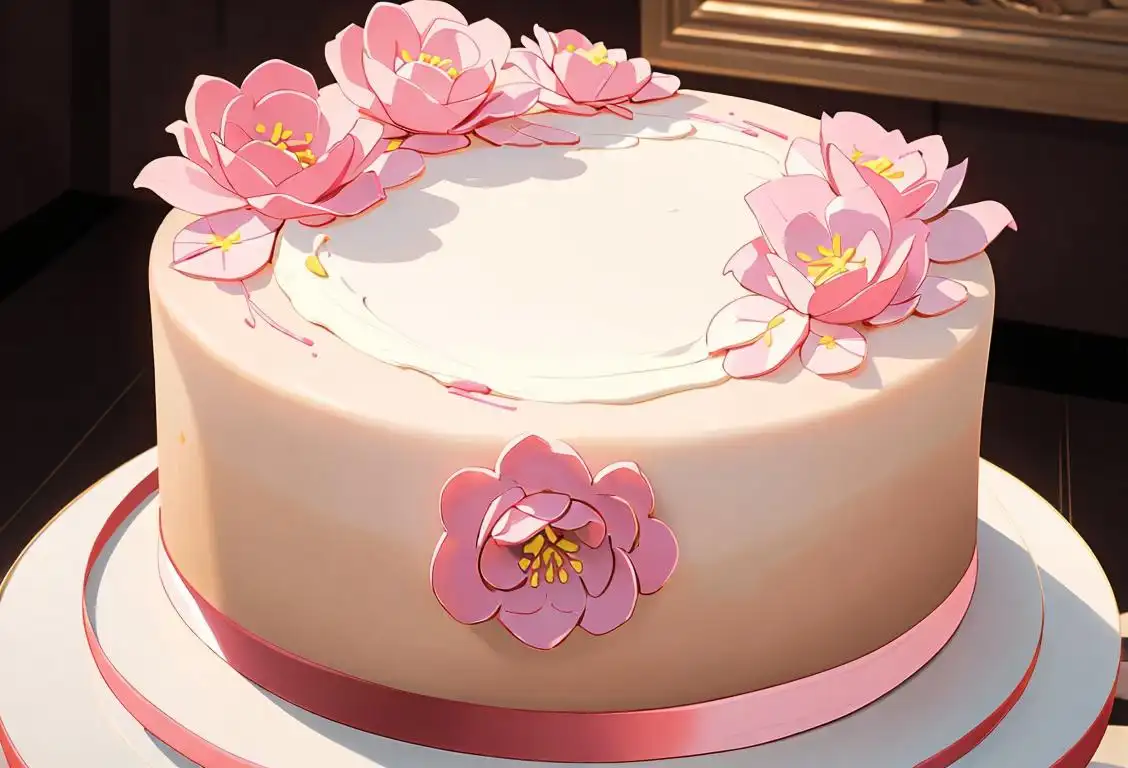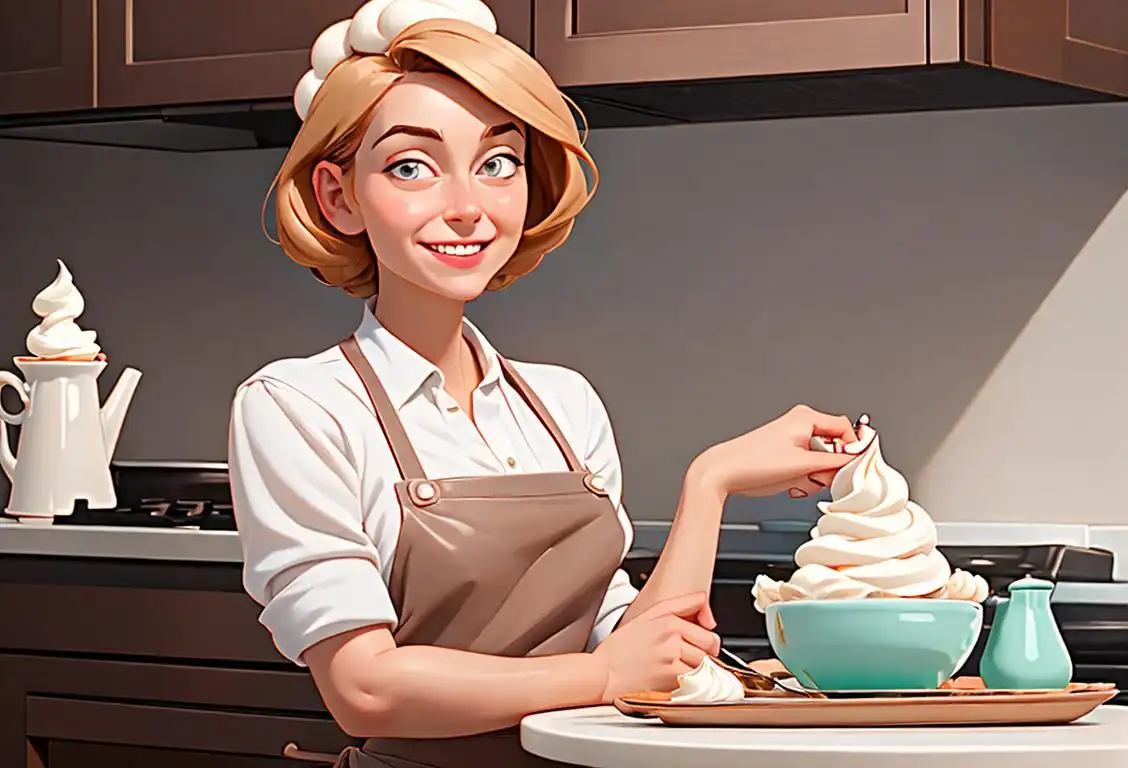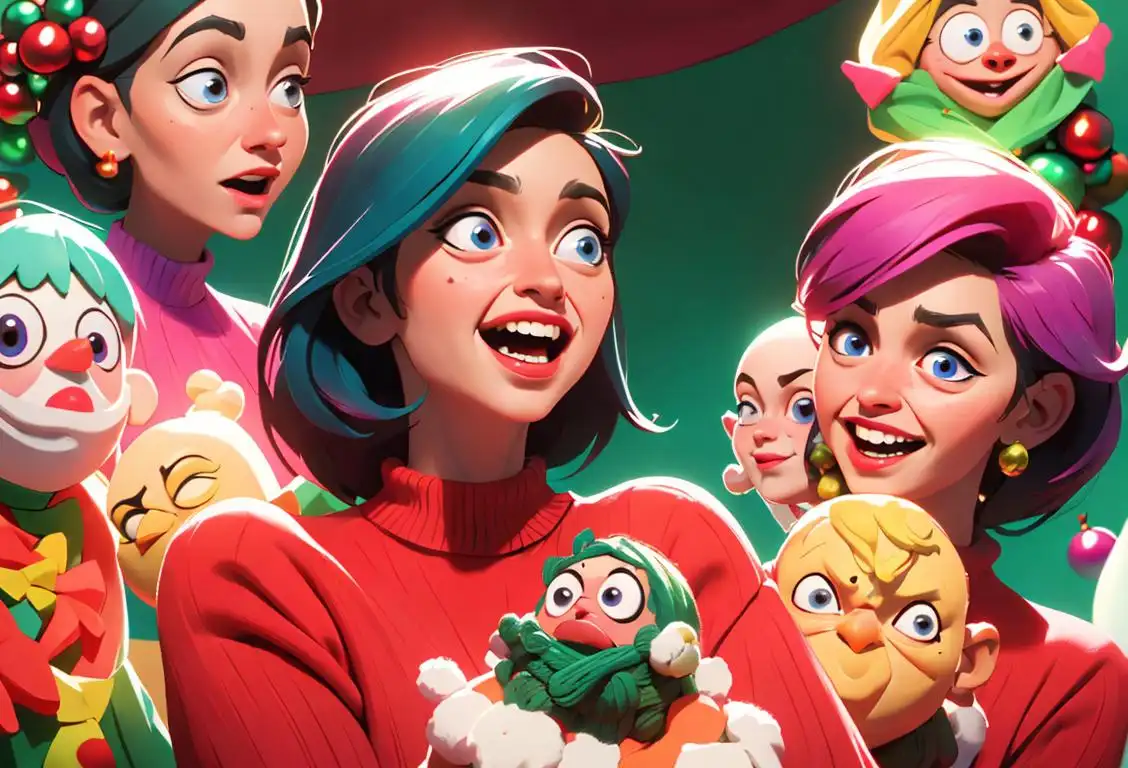National Aunts And Uncles Day
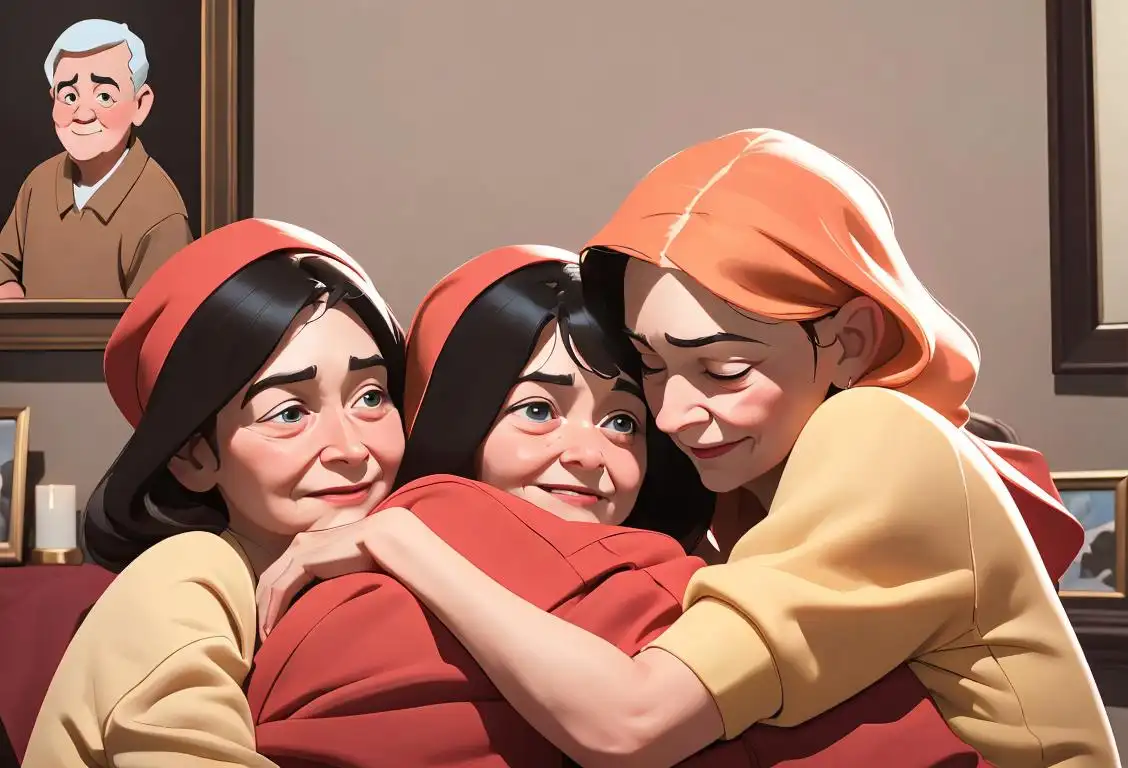
Hey there! Are you ready to celebrate National Aunts and Uncles Day? It's time to show some love to those special relatives who are like a combination of a sibling, parent, and best friend all rolled into one! Whether they spoil you with treats, give the best hugs, or hand out some sage advice, aunts and uncles are truly magical. So, let's dive into the delightful history of this special day!
When is Aunts And Uncles Day?
It's national aunts and uncles day on the 26th July.
What is National Aunts and Uncles Day?
National Aunts and Uncles Day is a day to celebrate and appreciate the incredible role that aunts and uncles play in our lives. These beloved family members offer guidance, support, and lots of love to their nieces and nephews. It's a day to honor the unique bond between aunts, uncles, and their adoring nieces and nephews.
The Internet Connection
The origins of National Aunts and Uncles Day are shrouded in mystery, just like Uncle Bob's secret barbecue sauce recipe. However, our trusty internet detectives have scoured the web to bring you some interesting tidbits. We detected 24 online mentions of this fabulous day! The most buzzworthy year for National Aunts and Uncles Day was in 2016, specifically on July 26th. It seems like people just couldn't contain their excitement for celebrating these awesome relatives back then!
Why Aunts and Uncles Deserve a National Day?
Aunts and uncles are like magical creatures that sprinkle extra love and fun into our lives. They spoil us with treats when our parents aren't watching, take us on thrilling adventures, and always lend a listening ear when we need someone to talk to. They're a source of endless wisdom, hilarious stories, and life lessons. Whether it's that funny uncle who tells the best jokes or that aunt who always bakes the most mouthwatering cookies, aunts and uncles deserve a day to be celebrated for their awesomeness!
How to Celebrate National Aunts and Uncles Day?
Are you wondering how you can show your appreciation for your beloved aunts and uncles on this special day? Well, fear not! We've got some fantastic ideas to help you celebrate in style. First, reach out to your aunts and uncles and let them know how much they mean to you. Send a heartfelt card, give them a call, or gather everyone together for a fun family gathering. You could also surprise them with a small gift or treat to brighten their day. If you can't be with them in person, organize a virtual get-together to catch up and share some laughs. However you choose to celebrate, make sure your aunts and uncles feel the love and appreciation they deserve!
History behind the term 'Aunts And Uncles'
600 BCE
Ancient Roots
The concept of extended family has been present throughout history, with aunts and uncles playing important roles in many cultures. In ancient civilizations such as Egypt, Greece, and Rome, the terms 'aunt' and 'uncle' were used to refer to siblings of parents. These family relationships were highly valued, as aunts and uncles often provided guidance, support, and inheritance to their nieces and nephews.
13th century
Emergence of extended family networks
During the 13th century, the concept of extended family networks became prevalent in societies. In many cultures, cousins, nieces, nephews, and close family friends began to be referred to as aunts and uncles, as they played a significant role in the upbringing and support of children. This term not only conveyed a sense of familial connection but also reflected the importance of these relationships in many communities.
Late 14th century
Etymology of 'aunt' and 'uncle'
The terms 'aunt' and 'uncle' can be traced back to the late 14th century. The word 'aunt' originates from the Old French word 'ante,' which came from the Latin word 'amita.' Similarly, the word 'uncle' is derived from the Old French word 'oncle,' which came from the Latin word 'avunculus.' These words were used to describe familial relationships and gradually became widely recognized terms.
16th century
Formalization of 'aunt' and 'uncle'
By the 16th century, the terms 'aunt' and 'uncle' had been firmly established in English. They were commonly used to refer to the siblings of one's parents or the spouses of one's parents' siblings. These terms helped to define extended family connections and played a crucial role in familial relationships, reflecting the importance of kinship in society.
17th century
Etymological evolution of 'aunt' and 'uncle'
In the 17th century, the English language witnessed an etymological evolution of the words 'aunt' and 'uncle.' The term 'aunt' can be traced back to the Old French word 'ante,' meaning 'paternal aunt,' while 'uncle' derived from the Latin word 'avunculus,' which referred to the mother's brother. These linguistic shifts further solidified the use of 'aunts' and 'uncles' to depict extended family members and close family friends, emphasizing their contribution to the upbringing of children.
12th Century CE
Kinship Terminology
During the Middle Ages, the English language underwent significant changes, including the development of specific terms for family relationships. The terms 'aunt' and 'uncle' emerged during this period to distinguish the siblings of one's parents. This shift in kinship terminology provided clearer distinctions within family structures, reinforcing the importance of aunts and uncles in societal roles.
18th Century CE
Colonial Influence
As European colonizers settled in different parts of the world, they brought their cultural practices and language with them. English-speaking settlers spread the terms 'aunt' and 'uncle' to colonies in North America, Australia, Africa, and other regions, integrating these familial labels into local languages and customs. Aunts and uncles became recognized and respected family members in diverse communities.
19th century
The rise of the nuclear family
In the 19th century, with the industrial revolution and changing social dynamics, the concept of the nuclear family gained prominence. The nuclear family referred to a household comprising parents and their children as a distinct unit. However, despite this shift, the role of 'aunts' and 'uncles' remained important as they continued to provide emotional support, guidance, and shared experiences within the extended family network.
19th century
Expanded meanings of the terms
During the 19th century, the meanings of 'aunt' and 'uncle' expanded beyond their strict familial definitions. These terms began to be used as respectful titles for unrelated individuals who were older and held a significant role in someone's life. Close family friends, mentors, and beloved community members often received the honorary titles of 'aunt' and 'uncle,' emphasizing the importance of non-blood relationships in various cultures.
20th century
Popularity in literature and media
Throughout the 20th century, 'aunts' and 'uncles' played significant roles in literature and media, becoming beloved characters in many stories. They were depicted as wise, caring, and often fun individuals who offered guidance and support to their nieces, nephews, and other young family members. This portrayal further solidified the cultural significance of the terms 'aunts' and 'uncles' as loving and influential figures within the extended family.
Present day
Continued significance and endearment
In the present day, the terms 'aunt' and 'uncle' continue to hold great significance. They not only refer to immediate family members but also symbolize love, care, and guidance from important figures in an individual's life. The use of 'aunt' and 'uncle' as honorary titles reflects the diverse and nurturing support systems that people cherish. These terms evoke a sense of endearment and close-knit connections within families and communities.
20th Century CE
Changing Roles
As societies evolved and transformed in the 20th century, so did the roles and perceptions of aunts and uncles. With the rise of nuclear families, aunts and uncles often took on more active roles in the lives of their nieces and nephews. They became additional sources of love, guidance, and support, creating strong bonds that extended beyond traditional familial obligations.
Present
A Venerated Connection
In the modern age, aunts and uncles remain cherished members of the extended family. They bring unique perspectives, experiences, and wisdom to their nieces and nephews, enriching family dynamics. The terms 'aunt' and 'uncle' have become symbols of affection and camaraderie, reflecting the enduring significance of these relationships in the fabric of our society.
Present day
Continued importance in modern society
In the present day, the terms 'aunts' and 'uncles' continue to hold great value in society. They represent cherished familial relationships and remain vital sources of support, mentorship, and love for children. Moreover, 'aunts' and 'uncles' often create unique bonds with their nieces and nephews, offering perspectives and experiences beyond those provided by parents. These relationships contribute to the richness of family dynamics and have a lasting impact on individuals' personal growth and emotional well-being.
Did you know?
Did you know that the word 'uncle' comes from the Latin word 'avunculus'? It means 'mother's brother' and is believed to have originated from the sweetheart relationship that once existed between a sister's son and his mother's brother. Talk about a sweet family connection!Tagged
fun loved ones celebrationFirst identified
26th July 2015Most mentioned on
26th July 2016Total mentions
24Other days
Graduates Day
Gorgeous Grandma Day
Wine And Cheese Day
Twins Day
Senior Citizens Day
Cake Decorating Day
Whipped Cream Day
Cheese Pizza Day
Ugly Sweater Day
Best Frand Day
